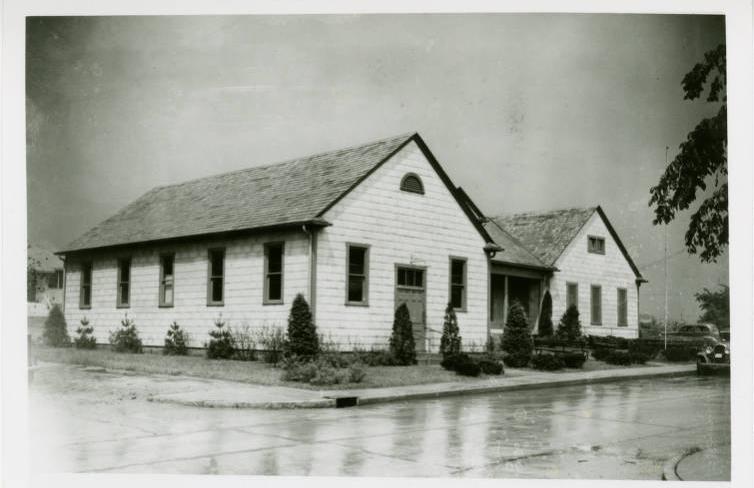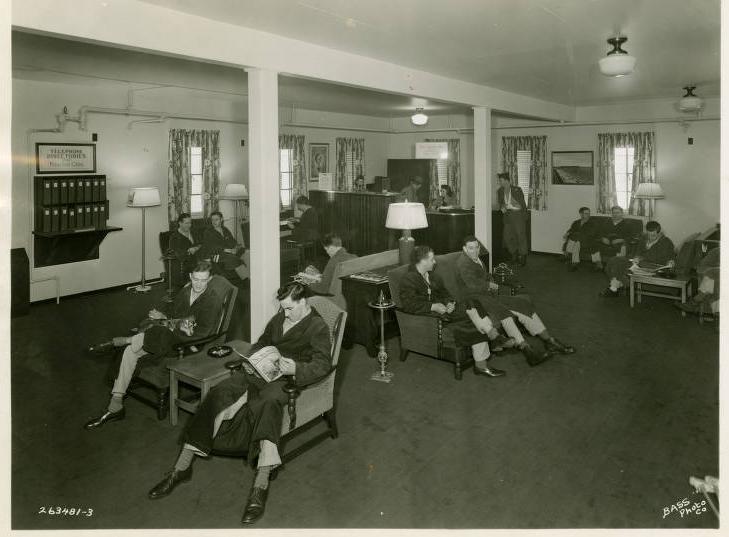Camp Atterbury (Edinburgh) was created to support . The area was chosen in Bartholomew, Johnson, and Brown Counties because of its terrain and its proximity to larger cities and transportation. It is named after William Wallace Atterbury, who received a Distinguished Service Medal during World War I. During its construction, Camp Atterbury earned the name Mudbury because of the mud created by the heavy spring rains.

Opened within a year of the war’s commencement in 1942 to train U.S. Army personnel (including the Women’s Army Corps), the camp was a critical piece of the World War II homefield strategy. It also became a reception and separation center processing 537,344 enlisted soldiers and 39,495 officers. During World War II, it trained four U.S. Army infantry divisions before their deployment overseas: the 30th , 83rd , 92nd , and 106th infantry divisions. It also had its own paper, (later and ), and a radio station, WAKE. Wakefield Hospital Center at Camp Atterbury became the fifth-largest service command, training medical personnel and treating over 85,000 patients during World War I.
Between 1943 and 1946, Camp Atterbury also was an internment camp for over 15,000 prisoners of war, mostly German and Italian. During that time, no prisoners escaped. Italian prisoners were given permission to build a chapel named, “The Chapel in the Meadow.” It was restored in 1989 and is the only POW structure remaining.

The camp and hospital were deactivated after World War II in December 1946 but were reactivated in 1950 to help with the Korean War efforts (28th and 31st Infantry Divisions). From 1969, it became a support for the Indiana National Guard and buttressed efforts for the Vietnam War, Operation Desert Shield, Operation Desert Storm as well as deployments to Iraq, Afghanistan, and Kuwait. The and the 38th Infantry Division help the camp live up to its adopted motto, Preparamus (We are ready), by conducting military and civilian training.
Over the years, the camp has also supported the Camp Atterbury Joint Maneuver Training Center (CAJMTC) and the Muscatatuck Urban Training Center (MUTC). Some of the camp land was leased to organizations including the Indiana Department of Natural Resources, the Atterbury Job Corps, and the Parks Department.
With the end of the Afghanistan War on August 31, 2021, Camp Atterbury became a temporary housing facility with a capacity for up to 5,000 Afghan evacuees as part of Operation Allies Refuge.

Help improve this entry
Contribute information, offer corrections, suggest images.
You can also recommend new entries related to this topic.